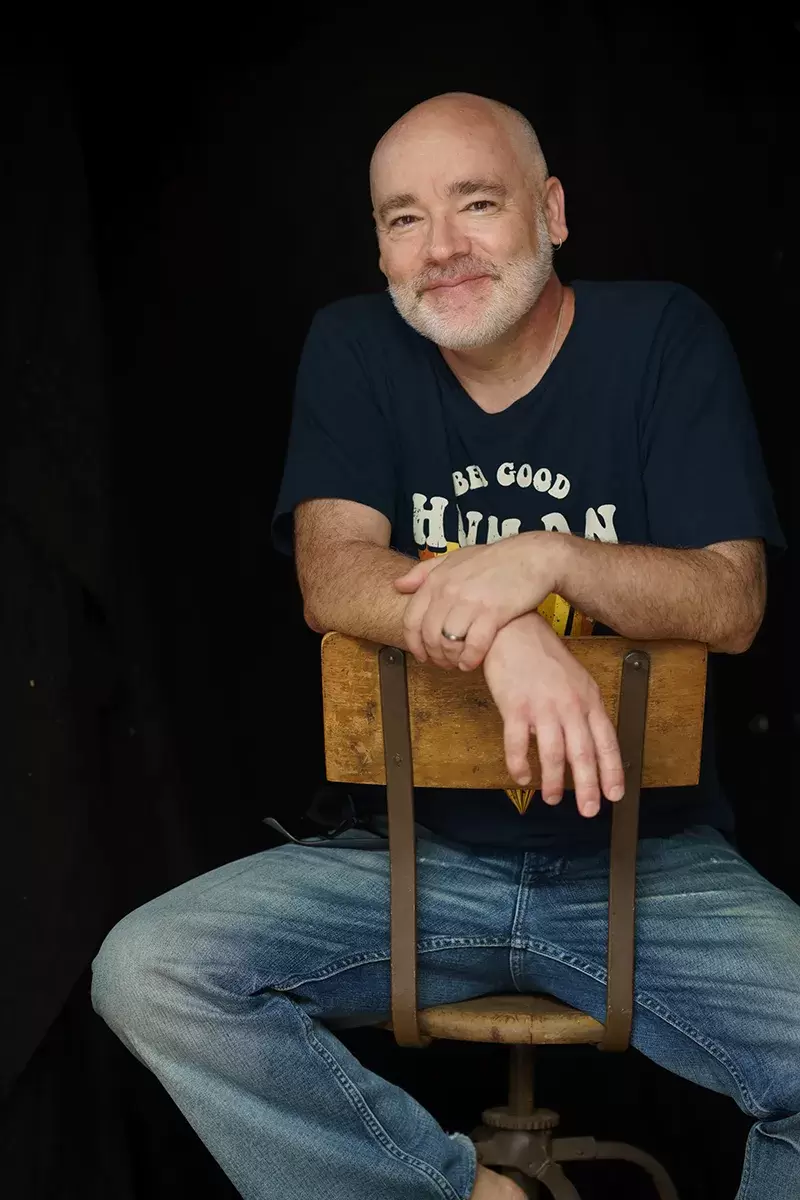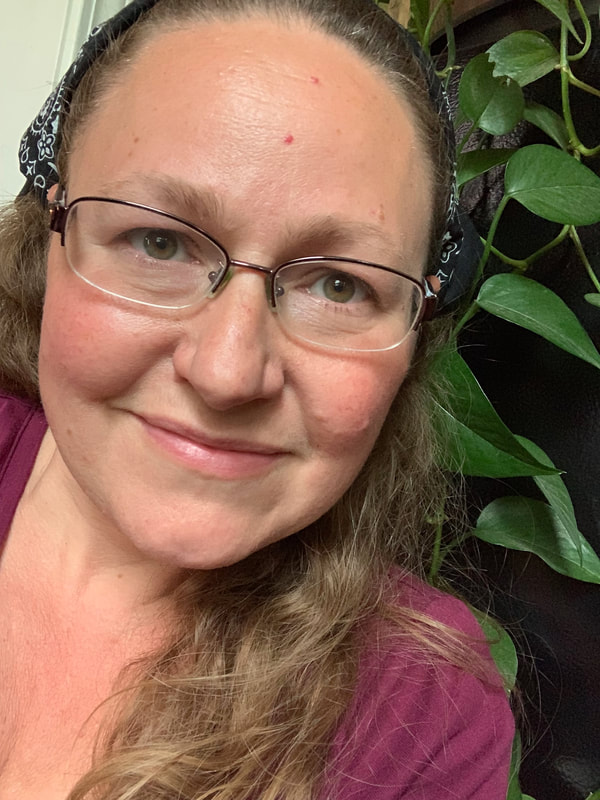|
Benjamin Bagocius, PhD, MFA, writes and teaches broadly across literature, spirituality, and feminist and queer thought. His writing appears in a range of venues, including Journal of Feminist Studies in Religion, Studies in the Novel, Tiferet, and The Other Journal. Ben’s first book of poetry, The Canaanite Woman, appeared in 2022. The Gospel According to B. is Ben’s second book. Reach out and learn more at BenjaminBagocius.com. Benjamin Bagocius, PhD, MFA, is associate professor of the humanities with Bard Early Colleges in Washington, D.C. two books of poetry -- The Canaanite Woman and The Gospel According to B. -- are forthcoming from Resource Publications and Unsolicited Press, respectively. He is founder and director of the Institute for Spiritual Poetry, which hosts writing workshops, group spiritual companioning, a journal, and other events. His poetry, essays, and academic articles also appear in a range of venues, including On Being, Tiferet, Pensive, Modernism/modernity, and is forthcoming in Studies in the Novel. Reach out and learn more at InstituteForSpiritualPoetry.com and BenjaminBagocius.com.
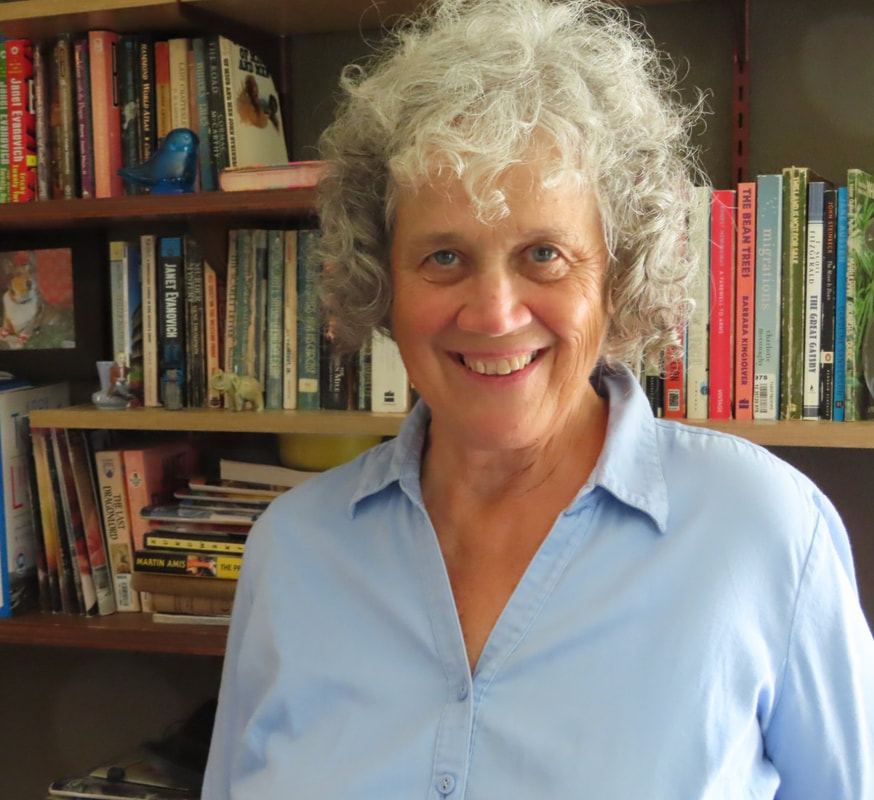 Yvonne Osborne is a 5th generation Michigander who grew up on the family farm under the tutelage of a grandmother who loved Shakespeare before Shakespeare was cool. After college and a stint in the Buckeye State, she and her husband moved back to the farm founded by her great-great-grandfather. Her poetry and short stories can be found in The Slippery Elm Literary Journal, Flapper Press, Third Coast Review, Full of Crow, Midwest Review, Great Lakes Review, and in various anthologies. Let Evening Come is her debut novel. For more, visit her at yvonneosborne.com Sean Murphy is founder of the non-profit 1455 Lit Arts, and directs the Storytelling Initiative at Shenandoah University. He has appeared on NPR's "All Things Considered" and been quoted in USA Today, The New York Times, The Huffington Post, and AdAge. A long-time columnist for PopMatters, his work has also appeared in Salon, The Village Voice, Washington City Paper, The Good Men Project, Sequestrum, Blue Mountain Review, and others. His chapbook, The Blackened Blues, was published by Finishing Line Press in 2021. His second collection of poems, Rhapsodies in Blue was published by Kelsay Books in 2023. His third collection, Kinds of Blue, and This Kind of Man, his first collection of short fiction, are forthcoming in 2024. He has been nominated four times for the Pushcart Prize, twice for Best of Net, and his book Please Talk about Me When I'm Gone was the winner of Memoir Magazine's 2022 Memoir Prize. To learn more, and read his published short fiction, poetry, and criticism, please visit seanmurphy.net/ and @bullmurph.
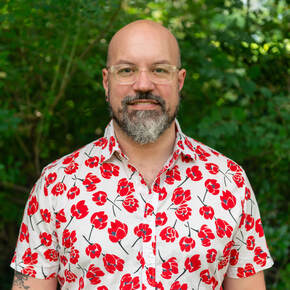 Anthony DiPietro is a gay sex poet and arts administrator originally from Providence, Rhode Island. He has lived throughout New England and in California, New York, Oregon, and Tennessee. A graduate of Brown University with honors in creative writing, he also earned a creative writing MFA at Stony Brook University. Now deputy director of Rose Art Museum at Brandeis University, he resides in Worcester, MA. He composed his 2021 chapbook And Walk Through (Seven Kitchens Press) on a typewriter during the pandemic lockdowns. kiss & release is his debut collection. His writing and readings are featured on his website, www.AnthonyWriter.com. David Loring Nash is an author and singer-songwriter from Southeast Minnesota. His works include the novel The Man in the Pines, a re-imagination of the legendary folk figure, Paul Bunyan. He was born in Rochester, Minnesota where he spent his childhood before attending Augsburg University. After college, he traveled the country for nearly a decade ultimately settling in La Crescent, Minnesota by way of Omaha, Nebraska and Norfolk, Virginia. He spends his free time daydreaming, writing, and chasing his children (David and Anna) and the outdoors with his wife, Sara.
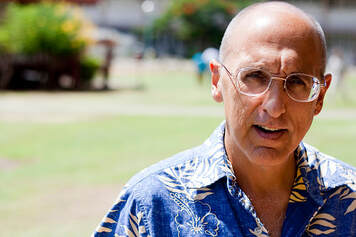 Eric Paul Shaffer is the author of seven books of poetry: Even Further West (2018); A Million-Dollar Bill (2016); Lāhaina Noon (2005); Living at the Monastery, Working in the Kitchen (2001); Portable Planet (2000); RattleSnake Rider (1990); and Kindling: Poems from Two Poets (1988; with James Taylor III). More than 500 of Shaffer's poems have been published in reviews, journals, and magazines throughout the USA, Australia, Canada, England, Ireland, Japan, New Zealand, Nicaragua, Scotland, Singapore, and Wales, including North American Review, RATTLE, Slate, and The Sun Magazine; Australia’s Cordite Poetry Review, Going Down Swinging, Island, Quadrant Magazine, and Westerly; Canada’s CV2, Dalhousie Review, The Fiddlehead, and Prairie Fire; Éire’s Poetry Ireland Review and Southword Journal; England’s Iota, Magma, and The Stand Magazine; and New Zealand’s Poetry NZ and Takahē. His work has been translated into Esperanto, Farsi, and Spanish. His poems also appear in more than twenty anthologies of poetry, including The EcoPoetry Anthology (Trinity UP, 2013), Jack London Is Dead: Contemporary Euro-American Poetry in Hawai‘i (Tinfish, 2013), 100 Poets Against the War (Salt, 2003), and The Soul Unearthed (Tarcher/ Putnam, 1996). His first novel Burn & Learn, or Memoirs of the Cenozoic Era was published in 2009. His short fiction appears in Bakunin, Bamboo Ridge, Natural Bridge, and News from the Republic of Letters, and in two chapbooks, You Are Here (2004) and The Felony Stick (2006), both containing chapters selected from his novel. Shaffer received Hawai‘i’s 2002 Elliot Cades Award for Literature; a 2006 Ka Palapala Po‘okela Book Award for Lāhaina Noon; the 2009 James M. Vaughan Award for Poetry for his poem “The Whistle,” which appears in A Million-Dollar Bill (2016); and the 2010 Loren Tarr Gill Award for Poetry for his poem "A Boat of Bones," which appears in Even Further West (2018). In 2013, Shaffer was the keynote speaker at Hawai‘i Pacific University’s 16th Annual Ko‘olau Writing Workshops, and in 2015, he was a visiting poetry faculty member at the 23rd Annual Jackson Hole Writers Conference in Wyoming. Shaffer lives on O‘ahu and teaches composition, literature, and creative writing at Honolulu Community College. Elizabeth Joy Levinson is a high school teacher in Chicago, where she lives with her husband & pets. She has an MFA from Pacific University and an MAT in Biology from Miami University. She is the author of two chapbooks, As Wild Animals (Dancing Girl Press) and Running Aground (Finishing Line Press) and has had work published in many independent journals.
Sarah K. Lenz grew up in central Nebraska. Her creative nonfiction has appeared in Colorado Review, New Letters, Triquarterly, The Fourth River, Pen Dust Radio and elsewhere. Her work has been named Notable in Best American Essays three times. She writes the newsletter Spirit: Notes for the Creative Contemplative. Sarah is an Assistant Professor of English at Del Mar College in Corpus Christi, Texas where she lives with her husband, son, and twelve typewriters. Find her online at sarahklenz.com.
Philip Jason’s stories can be found in magazines such as Prairie Schooner, The Pinch, Mid-American Review, Ninth Letter, and J Journal; his poetry in Spillway, Lake Effect, Canary and Summerset Review. He is a recipient of the Henfield Prize in Fiction. His first collection of poetry, I Don’t Understand Why It’s Crazy to Hear the Beautiful Songs of Nonexistent Birds, is forthcoming from Fernwood Press. For more information, visit philipjason.com.
Tim DeMarco is a teacher, translator, writer, and wannabe musician. Release Me is his first novel. He currently lives at the Jersey Shore, where—despite having such a big mouth—he constantly bites off more than he can chew. Visit him at timdemarco.com
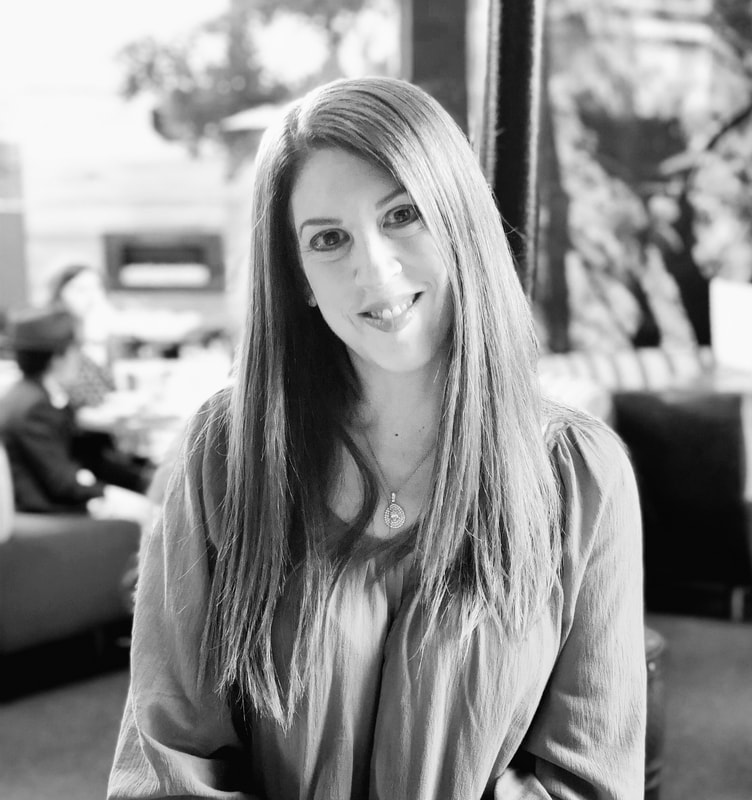 Stacey Freeman is a writer and journalist and the founder of Write On Track LLC, a full-service consultancy dedicated to providing high-quality content and strategy to individuals and businesses. Her writing has appeared in The Washington Post, The Lily (published by The Washington Post), Forbes, Entrepreneur, MarketWatch, Good Housekeeping, Cosmopolitan, Woman’s Day, Town & Country, InStyle, PBS’ Next Avenue, AARP, SheKnows, Yahoo!, MSN, HuffPost, POPSUGAR, Your Teen, Grown & Flown, Scary Mommy, CafeMom, MariaShriver.com, and dozens of other well-known platforms worldwide. She lives in New Jersey with her three children. Paul Justison dropped out of high school in 1966 and fled to Haight-Ashbury, spending most of the next two years there and in Marin County engaging in all the pleasures and follies that magical time had to offer. After the sixties ended, he went to college, started a career, and raised a family. He has been published in The Rumpus, The Gambler Mag, Flash Fiction Magazine, and Fiction on the Web. Lost and Found in the 60s is his first novel.
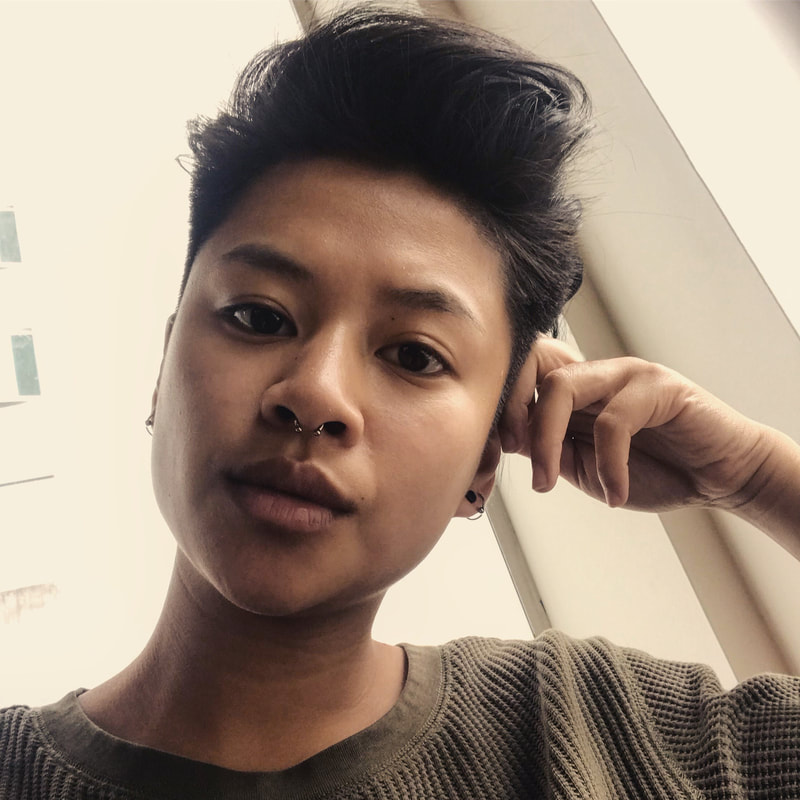 Rhys Daly is an Asian-American Seattle area writer and actor who wishes he lived even closer to the ocean. His work often explores discomfort, uncertainty, identity, acceptance, and the wonder in the mundane. When he’s not hunched over a coffee table furiously memorizing lines or scribbling up poems, he can be found walking moodily down a city street looking for his next bit of inspiration. Other works can be in Volume Four, Issue 3 of Rigorous Magazine, as well as the Fall 2020 issue of Short Vine Journal. Janette Kennedy, MAEd, MFA regularly wrangles dreams, family, and words. Her poetry has appeared at Mothers Always Write, on the Tiferet Journal community blog, and on the sidewalk of her hometown as a part of the 2021 World Travels Sidewalk Poetry Contest. Although she has been known to sling data and pivot tables with the best, she is fascinated by the power of art and nurturing creativity. She has taught diverse students of all ages for over 15 years, and currently teaches undergraduate composition and literature. Discover more at janettekennedy.com
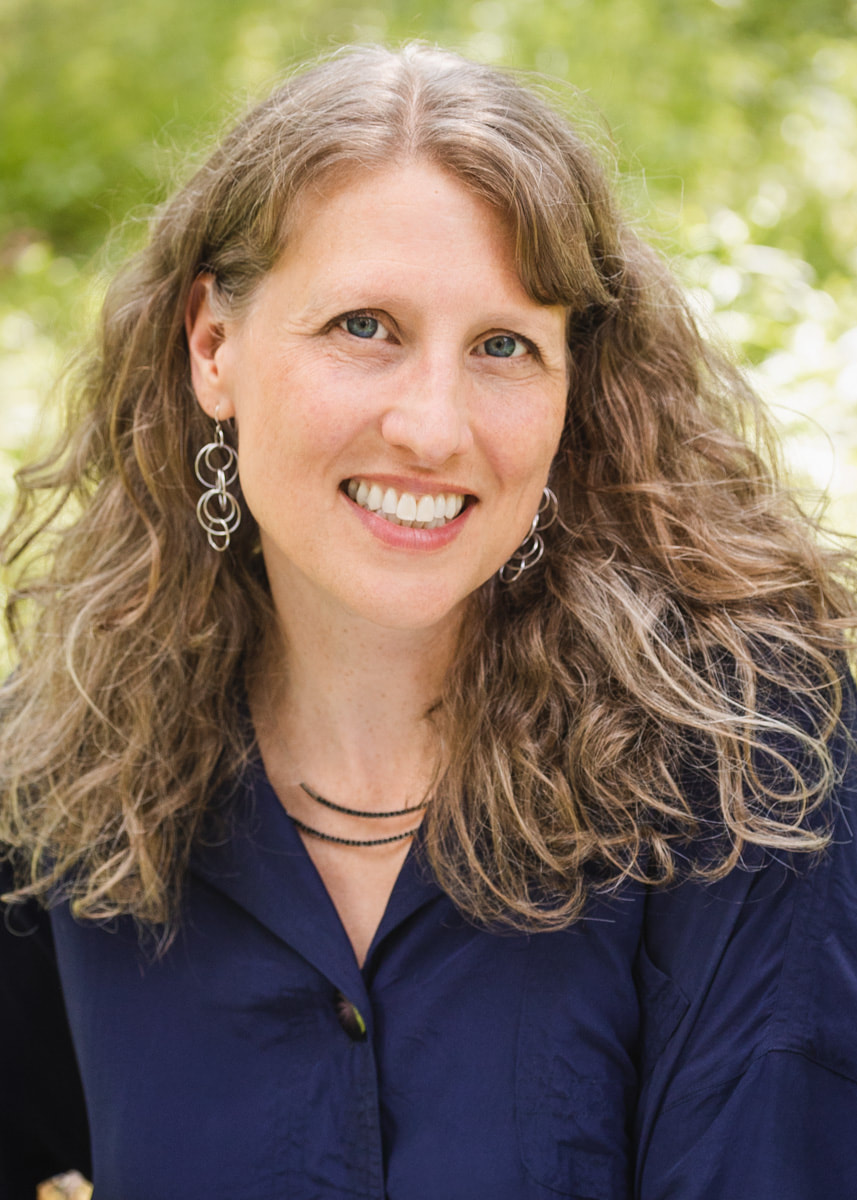 Born and raised in the Pacific Northwest, Mari Matthias has always had a creative project underway – from putting on neighborhood plays at age six, to teaching English in Japan at age 18, to opening a Spanish language school so her two-year-old would have a community of learners. She moved to White Salmon, Washington, with her husband in 1995 and raised two kids there. The Runestone’s Promise is Mari’s first novel. She found the bones of this story in a compilation of family history and was rapt until it was written. Find more at marimatthias.com.  Credit: Franco Vogt Credit: Franco Vogt Jonathan Lerner, born in 1948, grew up in Washington, D.C., with the exception of two years in the late fifties when his father, a Foreign Service officer, was posted to Taipei. That experience, and the journeys there and back which took his family literally around the world, primed a lifelong addiction to travel. It was also the germ for his new novel LILY NARCISSUS. Lerner matriculated at Antioch College in 1965, but dropped out two years later and immersed himself in New Left activism, joining the staff of Students for a Democratic Society. His early writing experiences were producing SDS publications and contributing to other counterculture and "underground" newspapers. In 1969 he helped found the breakaway SDS faction the Weatherman. That became the clandestine and cult-like Weather Underground, which carried out a campaign of bombings. These experiences—and the challenges of being a young man struggling with his gay identity in a macho group culture—informed both Lerner's novel ALEX UNDERGROUND and his memoir SWORDS IN THE HANDS OF CHILDREN. "When I stopped trying to be a full-time revolutionary, in the mid-seventies, I embraced my calling to be a full-time writer," Lerner says. His first novel, CAUGHT IN A STILL PLACE, was published in 1989. Meanwhile he had begun establishing what became a successful career as a magazine writer and editor. Early on he wrote mostly travel stories, typically with a design or historic preservation angle. Later he concentrated on topics including architecture, urban planning, and issues of natural resources and sustainability. His work has appeared in The New York Times, Metropolis, The Architect's Newspaper and numerous other publications. He has been a contributing editor at Landscape Architecture Magazine for the last decade. During the eighties Lerner lived in various parts of Florida, and after that for 21 years in Atlanta. In 2011 he moved to New York's Hudson Valley, to live with Peter Frank, a philanthropist and community activist, whom he married in 2015. 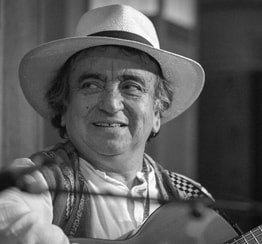 Fernando Andres Torres is a short-story writer, poet, musician and a freelance journalist currently contributing in English and Spanish to various San Francisco Bay Area media, including La Opinión de La Bahía, San Francisco Bay Guardian, El Tecolote, La Voz de Richmond, El Reportero, and Radio Bilingue. He is volunteer associate editor and U.S. correspondent for the web magazine Dilemas, and editor of the blog LatinOpen.wordpress.com. Under the dictatorship of General Augusto Pinochet, Torres joined the Chilean resistance and in 1975 he was arrested by the regime’s secret police. While imprisoned, he recited poetry and hand-wrote messages with quotes about optimism and hope to pass among fellow prisoners. After being expelled from Chile and exiled in 1977, Torres continued to write poetry and short stories. His first book of poetry, co-authored with Victoria Miranda; On the Edges of a Countryless Weariness, was published under his pseudonym Camilo Feñini by Ism Press in 1986. Some of Torres fiction and non-fiction stories have been published in many magazines including ME: Multicultural Echoes, the magazine of the Department of International Languages, Literatures and Cultures of Chico's California State University. Torres has also been awarded fellowships by the New America Media in San Francisco. In 2018 his story Head Stew was selected as The Best New Writing 2018 by Hopewell Publications. In 2019, Scenes of Exile, a story based on Torres' exile, was published by The Bare Life Review Magazine, a journal of Immigrant and Refugees Literature. Other literary works by Mr. Torres have been published by Somos en Escrito Weebly; by Nobrow Fiction (2020); and by Lonely Cryptid Media (2020). Currently he is a member of the Advisory Board of ExposeFacts.org, and of the review panel of The Intrepid News Fund. As a composer and musician, Torres was a founding member of Latin American music ensemble Grupo Raiz, and have collaborated with many international musicians such as David Byrne, and shared the stage with American jewels like Pete Seeger and Holly Near. 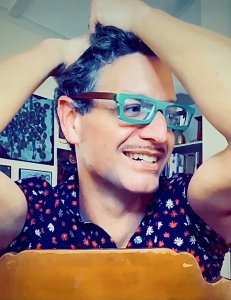 T.K. LEE is an award-winning member of the Dramatists Guild of America, the Society for Stage Directors and Choreographers, and the Association of Writers and Writing Programs, among others. In addition to poetry and drama, he has also crafted prize-winning short fiction and is core faculty in the nationally ranked MFA programs in Creative Writing as well as in Theatre Education, at the historic Mississippi University for Women, the nation’s first public academic institution for women, in Columbus, Mississippi. 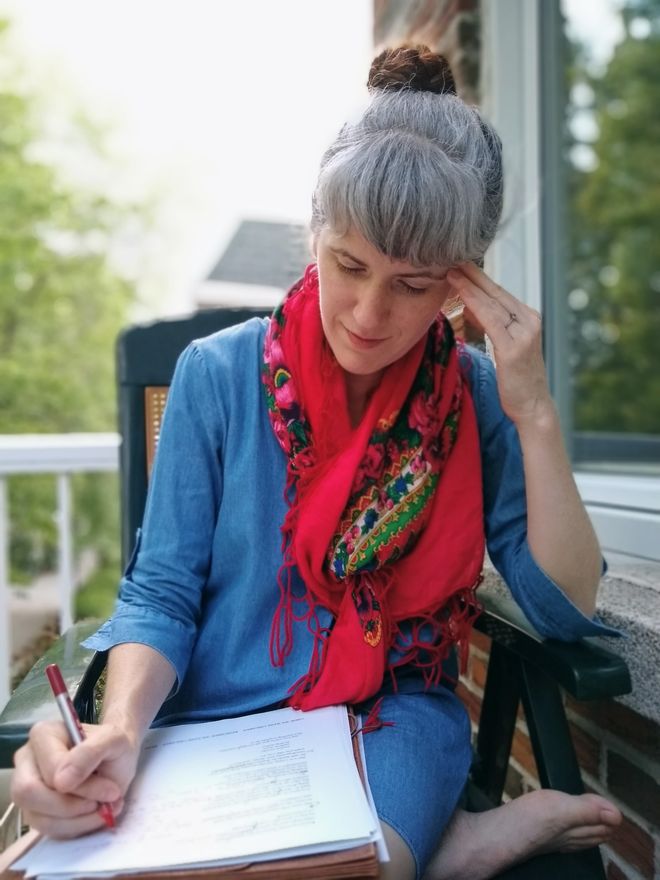 Elisabeth Blair is a poet, editor, and workshop leader with an extensive background in music and the visual arts. She has been artist-in-residence at the Atlantic Center for the Arts, Wildacres, the Kimmel Harding Nelson Center for the Arts, and ACRE. From 2016-19 she hosted and produced the podcast Listening to Ladies. Her publications include forthcoming full-length collection because God loves the wasp (Unsolicited Press, 2022), two chapbooks--We He She/It (Dancing Girl Press, 2016) and without saying (Ethel Press, 2020)—and poems in a variety of journals, including Harpur Palate (forthcoming), Feminist Studies, cream city review, and Juked. 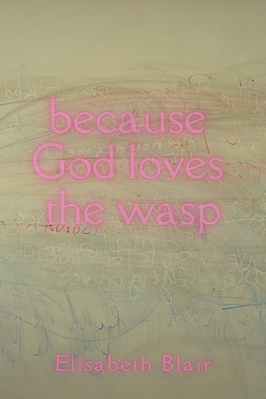 A memoir in verse, Elisabeth Blair’s because God loves the wasp documents two and a half years she spent living in two abusive facilities for “troubled teens” during the late 1990s. The wilderness camp and emotional growth boarding school were modeled on the teachings and tenets of Synanon, a mid-20th-century cult. Alternating between painful clarity and surreal metaphor, the poems grapple with the shock and disorientation of being taken away in the middle of the night by strangers; the bewilderment of navigating expectations in an environment of institutionalized bullying, shunning, and sleep deprivation; and the gravity of the adulthood that follows. Writing in the second person, Blair confronts the reader, withholding the potential relief of distance. Ripping through a patchwork of disturbing descriptions—of violent staff, isolated and terrified children, and decades of brutal nightmares—she cradles her fierce testimony in sonorous language and striking imagery. The book’s tight corralling of traumas takes aim at the notion that inducing fear, despair, and shipwrecked helplessness can rehabilitate a child—the catastrophic doctrine of “tough love.” 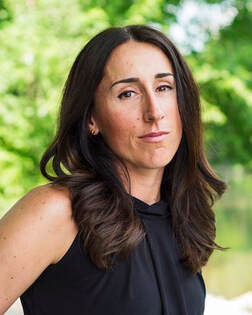 Photo by Dan Williamson Photo by Dan Williamson Tara Stillions Whitehead is a filmmaker and multi-genre writer living in Central Pennsylvania. Graduate of University of Southern California’s School of Cinema-Television Production and San Diego State University’s Creative Writing MFA Program, her writing and films work to subvert the toxic cultural narratives endorsed by popular media and the institutions that profit from stigmatizing and disadvantaging marginalized and historically oppressed groups. Her writing was included in the 2021 Wigleaf Top 50 and has been nominated for various awards, including Best of the Net, Best Small Fictions, AWP Intro Journal Awards, and the Pushcart Prize. A former DGA assistant director for television, she is currently Assistant Professor of Film, Video, and Digital Media Production at Messiah University, where she serves as production faculty for narrative filmmaking. Her hybrid chapbook/concept album, Blood Histories, was published by Galileo Press in 2021. 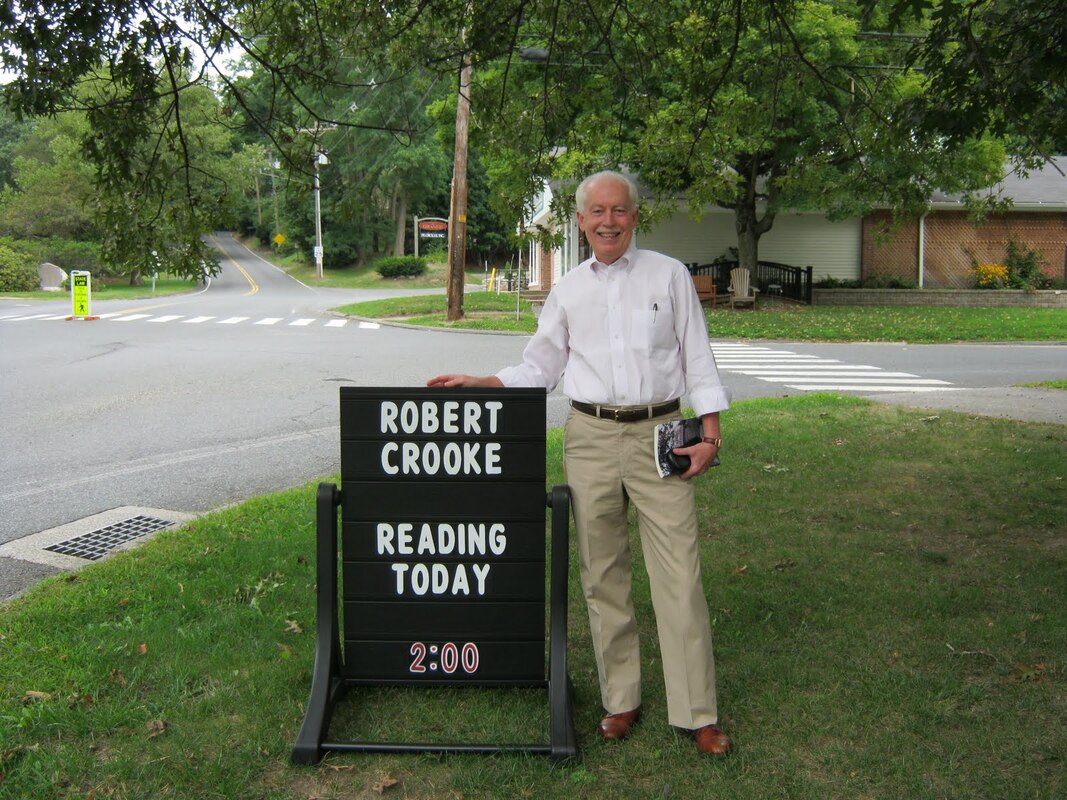 Robert Crooke is a journalist, media executive, and author. His poetry has been published in the West Hills Review: A Walt Whitman Journal, and his short fiction has appeared in The Paragon Journal, Literary Orphans Journal, and Linden Avenue Literary Journal. He began his career as a sports reporter and columnist for the Newhouse-owned Long Island Daily Press, and for thirteen years, he served as North American press spokesman for Reuters. Letting the House Go is his fifth novel. He and his wife reside in Bridgewater, CT. Catch up with him at his website: www.robertcrooke.com 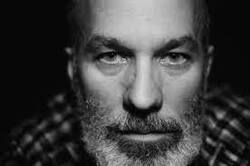 R.E. HENGSTERMAN is a former emergency room nurse. Born in Virginia and raised in New York, he holds masters' degrees from Appalachian State University and the University of North Carolina Wilmington, where he took up short story writing. He currently lives in North Carolina with the family and occasionally wears pants. Visit www.rehengsterman.com or @robhengsterman for more. Cedrick Mendoza-Tolentino was a 2014 Emerging Writer's Fellow at the Center for Fiction in New York City. He graduated with honors in the Undergraduate Creative Writing Program at Columbia University. He has had work published in Liars' League New York, Akashic - Mondays are Murder, Gargoyle Magazine, Joyland, Slow Trains and Plain Spoke. His chapbook Alphabetica: The Other Side of Love was published by Corgi Snorkel Press.
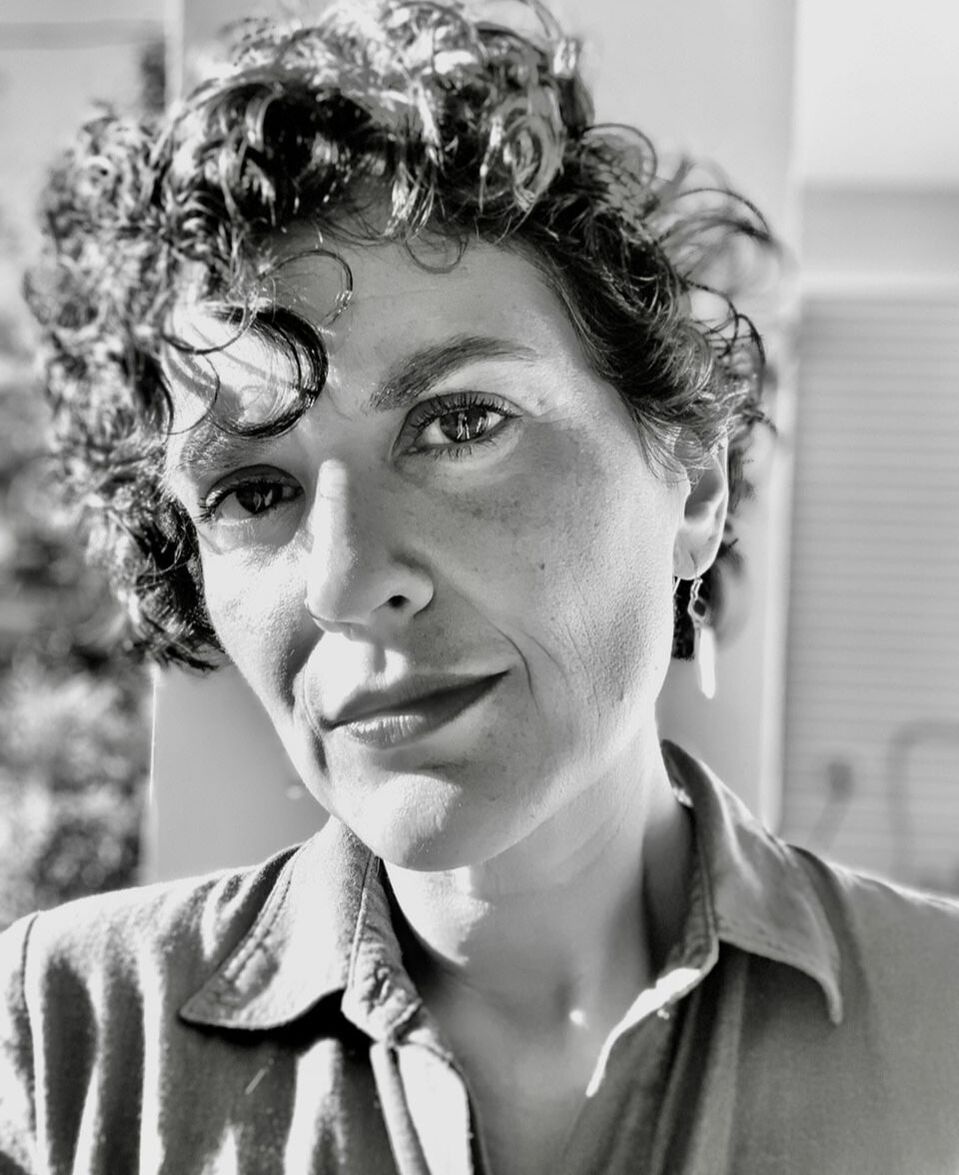 Melanie Sevcenko is a poet, radio producer, and recovering bohemian. She moved to Portland, Oregon by way of Berlin, Germany, where she lived for almost a decade and hustled as a film critic and reporter for various outlets. Her poems have appeared in Permafrost Magazine, Poetry Quarterly, Verse Daily, Black Heart Magazine, apt, The Fourth River, and more. She is quite proud of the title of her poetry chapbook, We Slept in Body Bags, Just in Case, which was published in 2013 by Finishing Line Press. She’s also an Irish and Canadian citizen and is probably a distant relative of Ukrainian writer Taras Shevchenko. These days, Melanie works in public radio and podcasting and contributes to NPR, The Guardian, and Marketplace, amongst others. In her off-time, she can be found cooking plant-based meals, lighting bonfires in backyards, or buried under her 16-pound orange tabby. 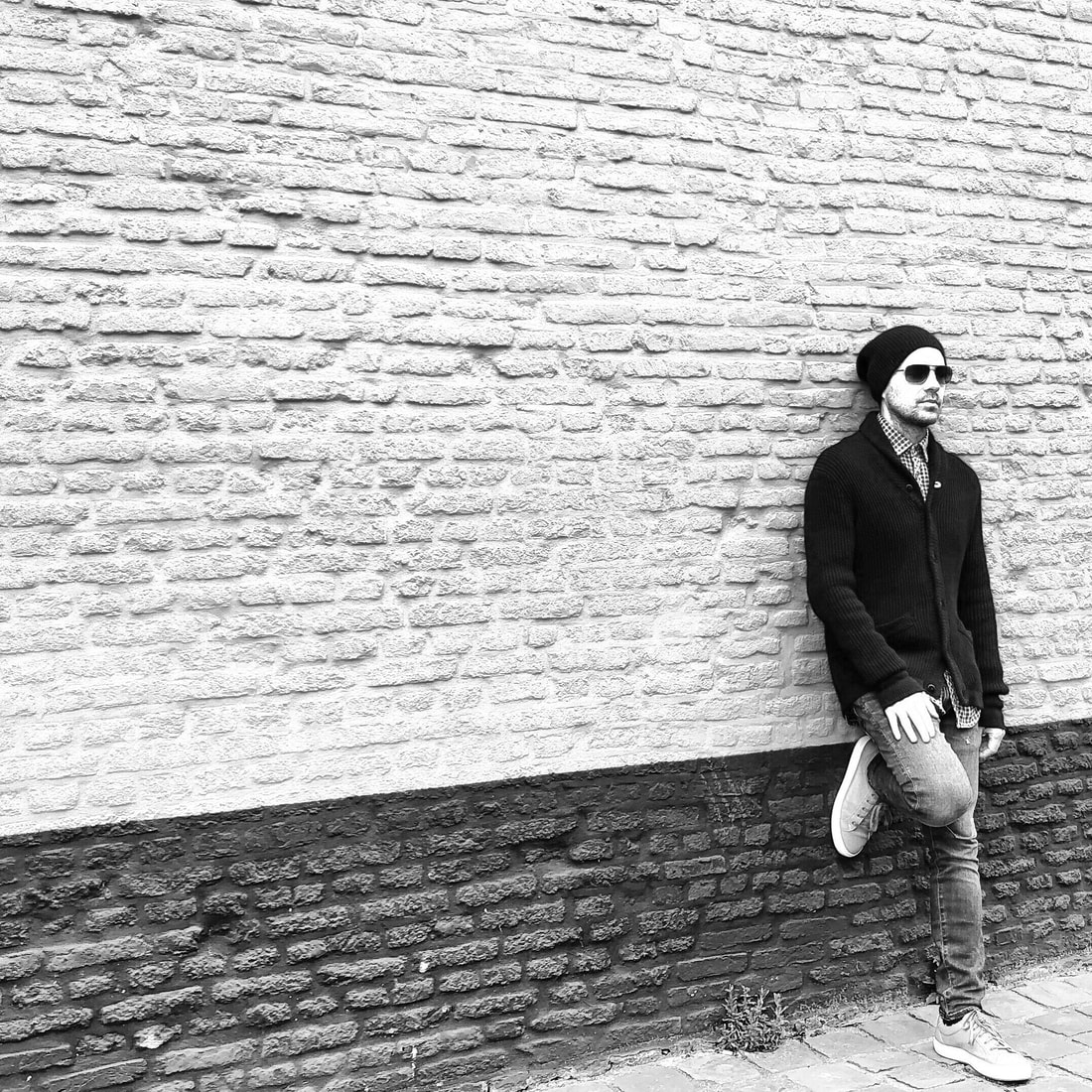 Jackson Bliss is the winner of the 2020 Noemi Press Award in Prose and the mixed-race/hapa author of Counterfactual Love Stories & Other Experiments (Noemi Press, 2021), Amnesia of June Bugs (7.13 Books, 2022), and the speculative fiction hypertext, Dukkha, My Love (2017). His writing has appeared in The New York Times, Tin House, Ploughshares, Guernica, Antioch Review, ZYZZYVA, Longreads, TriQuarterly, Columbia Journal, Kenyon Review, Vol. 1 Brooklyn, Witness, Fiction, Santa Monica Review, Boston Review, Juked, Quarterly West, Arts & Letters, Joyland, Huffington Post UK, The Daily Dot, and Multiethnic Literature in the US, among others. He is the Distinguished Visiting Writer at Bowling Green State University and lives in LA with his wife and their two fashionably dressed dogs. Follow him on Twitter and IG: @jacksonbliss. Interview with Jackson Bliss
If you could cook dinner for any author, dead or alive, who would it be? What would you make? I’d cook for Haruki Murakami, Zadie Smith, Joan Didion, Tommy Orange, Karen Tei Yamashita, or Sandra Cisneros. I’d probably make oko toast with avocado, homemade ramen, or kimchi jjigae because those things are hard to fuck up if you know what you’re doing and they also make you look more talented than you actually are in the kitchen. We all need shortcuts to greatness. Also, those foods can be so deeply satisfying on an emotional level and I’d want my fave author to experience joy so they know how I feel when I read their books. What scares you the most about the writing process? How do you combat your fears? Not being able to write anything, or anything that feels good to me when I read it again later on. I’m also afraid of people using my vulnerability in my writing against me. People can be such assholes when they’re trying to flex their moral education on you. When I’m afraid of something, I head right towards it because I know it’s not going to get easier by avoiding it, even though negative reinforcement is the most understandable defense mechanism there is. I guess I’d rather try and fail then not try at all. I don’t want to have regrets in my life. Also, I feel like we can always learn from our failures, but we can’t learn from the failures we didn’t make (because we were too afraid to make them). Fucking up is part of our agency I think. Who is your biggest literary crush, author or character? I have language crushes on Junot Diaz, Zadie Smith, Milan Kundera, Lydia Davis, Toni Morrison, Carole Maso, Sandra Cisneros, JM Coetzee, Kali Fajardo-Anstine, and WG Sebald. I have idea crushes on Haruki Murakami, Karen Tei Yamashita, Jorge Luis Borges, Ted Chiang, Octavia Butler, David Mitchell, Aimee Bender, Natsuo Kirino, and Italo Calvino. And I have story crushes on Yiyun Li, Adrian Tomine, Dostoevsky, JD Salinger, Alison Bechdel, Jhumpa Lahiri, and Tayeb Salih. What books are on your nightstand? Right now, I’ve just got Bryan Washington’s Lot on my nightstand because I’m a monogamous reader. Favorite punctuation mark? Why? It’s a toss up between a period and a colon. I like the openness of the colon, the way it opens up the sentence but also insists on a forced pause. I admire the closure and the definiteness of the period. I fucking detest the semicolon, though. If a pushy editor tries to replace my punctuation with a semicolon, I do a search and destroy mission immediately. What book were you supposed to read in college, but never did? James Joyce Ulysses. I still feel guilty about it to this day. What inanimate object would you thank in your acknowledgements? The sun for feeding the world, for always coming after leaving us in the dark, for its endless energy, devotion, and circularity. If you could write an inspirational quote on the mirrors of aspiring writers, what would you write? Get out while you can! Does writing energize or exhaust you? Both. In the initial creation phase, so unbelievably energizing I can barely sleep sometimes. But in the subsequent revision and editing stage, which is the other 80% of the writing process for me that usually takes years and years to finish, it starts to wear you down. It can feel futile, monotonous, repetitive, and unrewarding at times. What are common traps for aspiring writers? Undervaluing your work ethic and overestimating your talent. Not knowing how to revise a draft a million times until it sparkles. Forcing your workshop to clean up the shit in your draft. Not knowing how to critically and objectively evaluate your own manuscript (and then fix the issues you discovered along the way). Comparing yourself to other writers, many of them with completely different circumstances. Believing that the only way to “make it” is to get an agent, a six-figure advance from a Big-5 press, and a story published in the New Yorker. By all means, fight for that shit, but just remember that there are so many different streets that lead to Midtown (and some of them are closed for construction). What is your writing Kryptonite? Work & love for totally different reasons. At least love inspires me to write better and harder whereas work just makes me daydream about taking a bath, listening to Lana Del Rey, and playing Mass Effect on my PS4 in my bathrobe as I sip guava kombucha and snack on midnight nachos. Have you ever gotten reader’s block? Yeah and I try as hard as I can not to feel bad about it (especially during this goddamn pandemic). There are times I just don’t want to read at all, whether it’s my writing or someone else’s. Most of the time, though, I’m only adverse to reading when I’m hella absorbed about the manuscript I’m working on at that moment. Also, sometimes I get scared about the possibility of idea leakage between another book I’m reading and my own draft. Sometimes, I just don’t have the head space to cohabitate two different literary worlds at the same time. Do you think someone could be a writer if they don’t feel emotions strongly? Yes, unfortunately. There are some amazing writers who don’t seem to feel a damn thing but technically, they’re fantastic writers. I’m not hating, I’m just saying. Writers are allowed to write their books however they want and I don’t have to agree or understand either. But I will say this: most of my favorite writers seem to feel very deeply, which is probably why I love their writing so much (& also, I’d imagine, why they feel called to write out their lives in some way). What other authors are you friends with, and how do they help you become a better writer? I have friends who are writers and then I have writer friends (most of whom I’ve never met IRL) and then there’s everyone in between. I’ve been writing for a while, so I’m friends with a lot of writers, both completely unknown ones with insane talent and literary rockstars, but there’s too many to list here without doing someone a major disservice. Also, I know that I’ll obsess about who to (not) include, so I’m gonna peace out of this question before I overthink it! Do you want each book to stand on its own, or are you trying to build a body of work with connections between each book? Both. I’m not aiming for thematic, stylistic, or generic continuity in my body of work, I just want each book I write to stand tall and glimmer on its own because I’m vain, industrious, perfectionistic, and crazy ambitious like that. At the same time, I hope there is overlap in content, in voice, in imagination, and in stylization. My hope is that despite the huge differences between my books, readers will be able to open up to a random page and then say, “That shit’s Blissian!” or whatever. How did publishing your first book change your process of writing? Well, Counterfactual Love Stories & Other Experiments came out about two and half months ago and the longer it’s out there, the more I think about a conversation I had with my friend and mentor, Aimee Bender, who said that just knowing your work is OUT THERE for the world to read changes everything in a small but profound way, and I think she’s absolutely right. Until you publish a book, all your creative work is atomized into occasional literary journal publications at best and hiding in your hard drive at worst. But when your book is out there for readers to consider, read, and engage with, it kinda makes you feel like your art is finally real in a material sense. It feels legit, like your work can now speak for itself. What was the best money you ever spent as a writer? You mean money I got from my writing, specifically, or the best money I spent in my writing life? I did a reading last month from my short story collection and when they paid me, I bought a pair of dope kicks that I probably couldn’t have afforded otherwise. That felt good, not gonna lie! What authors did you dislike at first but grew into? At first, I wasn’t really into Toni Morrison, at least not Song of Solomon. In retrospect, I kinda hijacked my reading by putting the book down over and over again, forgetting the plot structure, then rereading the parts I’d forgotten, only to put the book down again. But by the time I got to Beloved and The Bluest Eye, I was completely sold. Not only are those better novels in my opinion, but I was more patient as a reader and just in a better place, emotionally speaking, to approach the novels on their own terms. Now, I’m a huge Toni Morrison fan. What was an early experience where you learned that language had power? There’s an essay in Dream Pop Origami that answers this question way better than I’m going to RN called “When Words Make You Free.” It’s about the time I translated for a Mauritanian refugee at his asylum interview with INS. Shit was intense! What’s your favorite under-appreciated novel? Banana Yoshimoto’s Kitchen is a quiet masterpiece, but for some reason, people always forget about it. As a writer, what would you choose as your mascot/avatar/spirit animal? My wifi network is “LanaDelReyIsMySpiritAnimal,” which is all you need to know, I think. What do you owe the real people upon whom you base your characters? Well, every person I write about in Dream Pop Origami is real since it’s a memoir, so I guess I owe them a lot of gratitude for their authenticity, individuality, struggle, and hard work to exist in this cruel world and never give up. I’m indebted to them for giving me so much to write about. How many unpublished and half-finished books do you have? Okay, I’m triggered! Seriously, though, I have two completed books that I’m trying to sell RN: a racial bildungsroman called Ninjas of My Greater Self about a mixed-race protagonist who falls in love with a suicidal movie star and later discovers that’s he part of an ancient ninja clan and a second short story collection called All the Places We Were Broken about mixed-race/hapa protagonists who get their hearts broken (and sometimes mended) all over the world that’s been longlisted at YesYes Books. I also have two early drafts of several other novels I won’t even think about touching until after Dream Pop Origami comes out in July 2022: an untitled novel about a family of mixed-race/hapa prodigies from Chicago and a second novel called We Ate Stars for Brunch that intersects with Ninjas as a counterfactual narrative exploring what happens if the protagonist makes a different major life decision. What does literary success look like to you? For me, the definition of literary success HAS to change at every stage in my writing career, otherwise I’d plateau. In the beginning, success meant publishing a piece in a literary journal. Then it meant publishing pieces in my fave literary journals like Fiction, ZYZZYVA, Guernica, Triquarterly, Boston Review, Longreads, etc., etc. Later it meant getting something in The New York Times. After that, success for me meant selling a book with a press. I was never picky about whether it was a Big-5 press or a small press, I only asked that the editors publish my book because of who I was as a writer, not despite it. In that regard, I’ve been hella lucky. Now, my new definition of success is selling my second short story collection with a readership that is already familiar with my writing, finding the perfect agent who is passionate about advocating for and selling books by BIPOC writers & getting them the kind of advance they deserve, and lastly, selling a bunch of screenplays that deal with mixed-race love, identity, and experimental forms of storytelling that center non-white characters. What’s the best way to market your books? If you can afford it, hire a freelance publicist! My other advice since I couldn't afford to hire a publicist for my first two books is this: You gotta bust the move to promote your own work because no one else is gonna do that work for you but you if you publish with a small press. No matter how good your book is, your book is not going to speak for itself if no one knows it exists and no one knows where to buy it. Those are just facts. I remember sending out hundreds of emails to literary journals, newspapers, editors, writing conferences, and bookstores just to get a couple interviews and several remote readings for Counterfactual Love Stories. It was a long slog, but what else can I do except try? What’s the most difficult thing about writing characters from the opposite sex? I don’t know what this says about my gender identity (and to be honest, I don’t care how people read my gender since it’s never been completely stable or static anyway), but almost all of my fave characters in my fiction are female characters. I’ve been told by quite a few women readers that I write female characters well, maybe because I can relate with them or because I care about them so much or because many of the most important people in my life are women. Either way, I feel like if you’re devoted to creating and developing characters that are complex, multidimensional, nuanced, surprising, defiant, and profoundly human and if you give those characters agency, backstory, and vocalization, more times than not, they should be pretty damn good and fairly complex. My trick is to give characters the freedom to act in ways I don’t always understand. What did you edit out of this book? Other travel essays, other personal essays, other lists that repeated many of the same things I’d already written about in this memoir. Also, I sometimes scaled down certain essays in Dream Pop Origami since their length really affected the overall pacing and narrative flow when read collectively even if separately, the length of that particular piece was fine. If you didn’t write, what would you do for work? I’ve tried not writing so many times and I just don’t know how to do it. That’s the goddamn truth. So, not writing isn’t an option for me since like many poets I know, I identify with my own language and I can’t survive without it. OTOH, if someone devised a cruel neurosurgery tool that could erase the part of my brain that needs to write, that knows how to write, and that seeks companionship in language while still leaving all the other parts of my brain intact, I suppose I would probably make a living traveling and taking pictures and writing music. I think it might actually be time to start my second post-rock/downtempo EP. |
Authors
All
|
